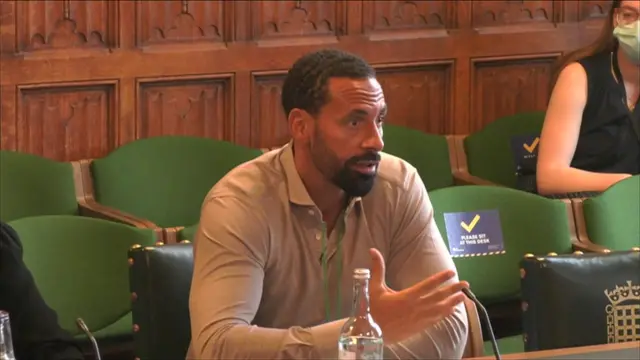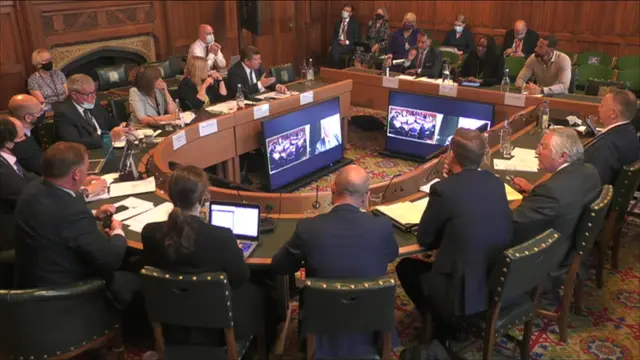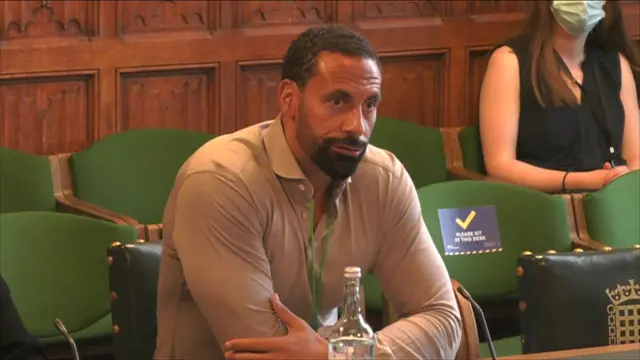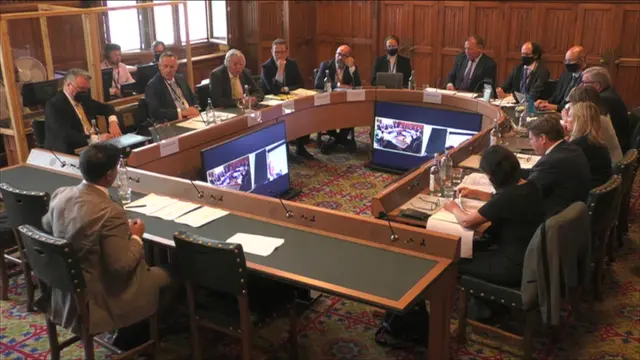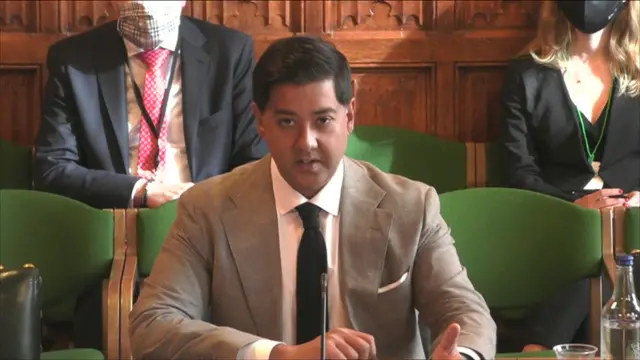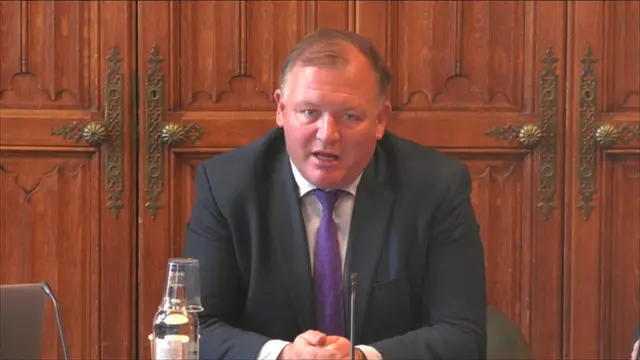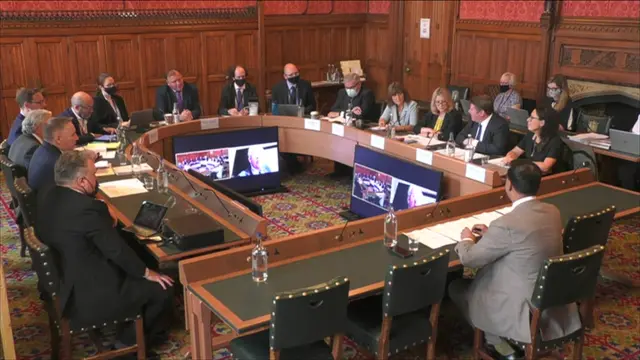Sharing abuse is too 'frictionless'published at 11:38 BST 9 September 2021
 Image source, HoC
Image source, HoCEdleen John is the FA's International, Corporate Affairs and Co-Partner for Equality, Diversity and Inclusion Director.
Edleen John says there needs to be mechanisms to prevent people creating an account, sending abuse, and then deleting the accounts.
She says it should be possible for new social media accounts to have a cooling off period, or some default settings, which prevent abuse being sent.
Sanjay Bhandari, chair of Kick It Out, a football anti-racism charity, says that the problem is the experience is so "frictionless" to allow people to send abuse without any real effort.
In years gone by, he says, to publicly share abuse you'd have to stand on Speakers' Corner, external, these days, footballers can receive abuse "straight into their eyes" as they sit in their living rooms.
Labour's Lord Stevenson of Balmacara asks if Ofcom is the right company to regulate this content.
Mr Bhandari says he believes it is, as they already deal with telecoms and communications more generally.
He says a big problem with learning how to regulate social media companies is because there is no established rule book on how to regulate such companies. There are no rules which can easily be borrowed and repurposed for the UK, he says.
 Image source, HoC
Image source, HoCSanjay Bhandari, chair of Kick it Out
